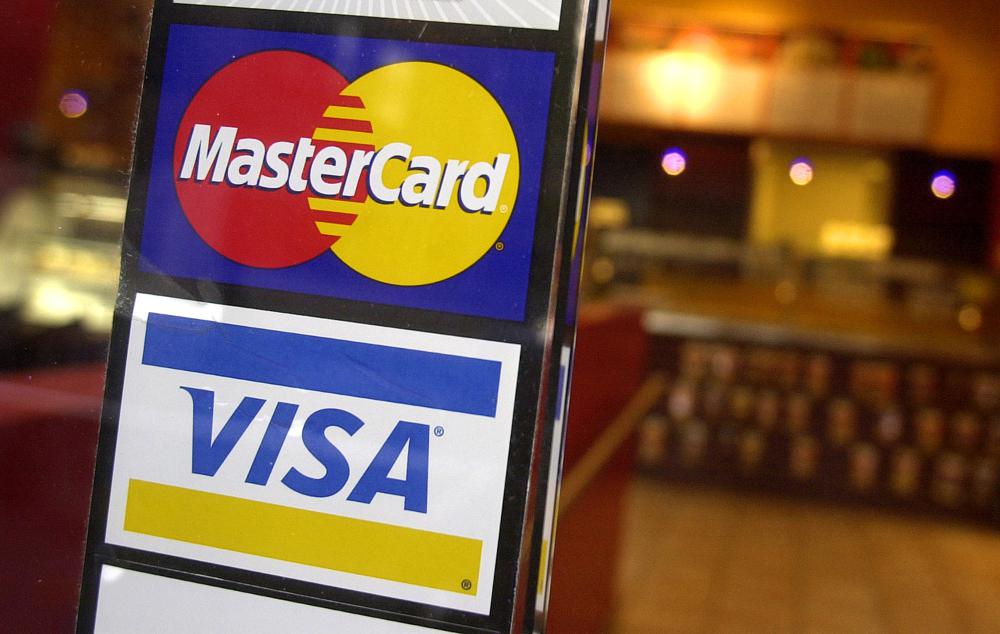|
Getting your Trinity Audio player ready...
|
Federal Rule Caps Credit Card Late Fees, Promises Relief for Millions of Americans
Edited by: TJVNews.com
In a landmark move poised to alleviate financial burdens for millions of Americans, the Consumer Financial Protection Bureau (CFPB) finalized a federal rule on Tuesday that imposes a cap of $8 per month on credit card late fees, as was reported by the New York Times on Tuesday. The bureau estimates that this regulatory change will result in annual savings of $10 billion for households across the nation, providing much-needed relief amidst economic uncertainties.
Late fees have long served as a significant revenue stream for credit card issuers, generating over $14 billion in 2022 alone, according to bureau data. However, the NYT report noted that a 2010 rule implemented by the Federal Reserve sought to curb these charges by capping them, albeit with provisions allowing for adjustments to account for inflation. Regrettably, card issuers exploited this loophole, inflating late fees far beyond the actual costs incurred, thus burdening consumers with exorbitant charges.
Rohit Chopra, the director of the CFPB, denounced this exploitative practice, asserting that credit card companies had profited at the expense of American consumers. “Today’s rule ends the era of big credit card companies hiding behind the excuse of inflation when they hike fees on borrowers and boost their own bottom lines,” Chopra declared, according to the NYT report. This statement signaled a decisive shift towards greater accountability and consumer protection.
Under the new restriction, credit card issuers will be limited to an $8 late fee, unless they can substantiate the need for higher charges to cover their actual collection costs. According to the information provided in the NYT report, while this regulation applies primarily to large issuers with over one million open accounts, the bureau estimates that it will encompass 95 percent of outstanding credit card balances, ensuring broad-reaching benefits for consumers nationwide.
The rule is slated to be published shortly in the Federal Register and will take effect 60 days thereafter, marking a pivotal step towards enhanced financial security for American households, the report in the NYT noted. However, banking trade groups have vehemently opposed the rule, signaling potential legal challenges aimed at obstructing its implementation.
Ian Katz, a managing director at Capital Alpha Partners, anticipated that litigation would be filed “in a sympathetic district where industry is likely to get the rule’s implementation delayed while the case is considered,” as was indicated in the NYT report. Meanwhile, the Bank Policy Institute, a prominent trade group, criticized the CFPB’s justification for the rule, arguing that it lacked the “reasoned analysis and evidentiary support” mandated by the Administrative Procedure Act.
Greg Baer, chief executive of a prominent trade group, criticized the rule, highlighting its perceived deficiencies and warning of potential adverse consequences for consumers. “Given the rule’s multiple deficiencies and shortcomings, its fate is likely to be resolved in federal court,” Baer asserted, raising concerns that the rule would lead to increased costs for consumers who pay on time and restrict access to credit for low- and moderate-income borrowers, as was pointed out in the NYT report.
Lindsey Johnson, chief executive of the Consumer Bankers Association, echoed Baer’s sentiments, citing a bureau analysis suggesting that card issuers might offset lost revenue by adjusting other fees or interest rates, the report in the NYT said. “By normalizing being late on credit card payments, the administration is knowingly putting consumers’ financial health at risk,” Johnson cautioned, underscoring the potential pitfalls of the new rule.
However, consumer advocates welcomed the change, lauding the bureau’s transparent approach in formulating the $8 fee limit. Lauren Saunders, associate director of the National Consumer Law Center, commended the bureau for its data-driven regulation, noting that the rule reflects a meticulous calculation process that prioritizes consumer protection. “The consumer bureau ‘showed its math’ in laying out how it calculated the $8 fee limit,” Saunders remarked, emphasizing the importance of evidence-based policy-making in safeguarding consumer interests, as per the NYT report.
The finalization of the rule comes after over a year of public consultation, with the bureau’s ultimate decision closely aligning with the initial proposal. The NYT report also said that President Biden is expected to highlight the significance of the rule in his upcoming State of the Union address, underscoring his administration’s commitment to cracking down on what it terms “junk fees.”
Under the leadership of Rohit Chopra, the agency has fervently pursued this agenda, targeting excessive fees through a series of enforcement actions and proposals for new restrictions. The report in the NYT also noted that in January, the agency initiated the formal process of adopting a rule aimed at reducing overdraft fees to $14 or less, signaling a broader initiative to enhance consumer financial protection.
As the rule faces legal scrutiny and divergent opinions persist, its implementation heralds a pivotal moment in the ongoing discourse surrounding consumer financial rights. While industry stakeholders brace for potential repercussions, advocates remain optimistic about the positive impact of regulatory reforms on consumer well-being. Ultimately, the fate of the rule hinges on its ability to strike a delicate balance between fostering financial inclusion and safeguarding consumer interests in an increasingly complex financial landscape.




